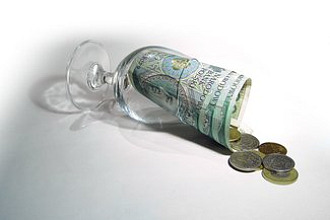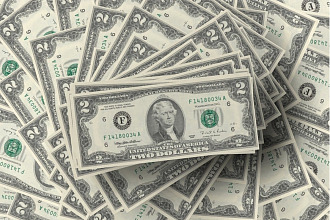For those caught in betrayal, the new trend is for them to appear on television and, as sincerely as possible, express sorrow for their marital unfaithfulness. Tiger Woods, after the public learned about several of his mistresses, apologized to his golfing fans. Bob McDonnell, Governor of Virginia and Eliot Spitzer, the former Governor of New York, publically expressed to their constituents regret for their indiscretions. Whether you feel these celebrities or politicians are sincere or not, it is the new fashion to use the power of the media to ask forgiveness of those you may have wronged.
Today, there are a variety of websites specializing in apologies like, thepublicapology.com, perfectapology.com or imsorry.com. Interestingly, the traffic in confessions on these websites has increased over 60 % in recent months. Whether or not the general public believes these are sincere efforts to right wrongs, being remorseful for mistakes and apologizing is part of good citizenship as well as the foundation of biblical forgiveness. However, in the financial sphere, many a wage earner needs to apologize to their spouses and families when their homes go into foreclosure because they have given away hard earned money on high interest debt that was really needed for food, clothing or college tuition. They have failed to save for those rainy‐day emergencies that challenge us all. Listed below are a
number of practical suggestions on how to increase your ability to save.
SAVE THE CHANGE
One of my mother's favorite sayings was, "Look after the pennies and the dollars will look after themselves." According to Coinstar, the manufacturer of coin counting products, there are approximately $10 billion in spare change stashed away in children's piggy banks, cans, jars and car coin holders. In the March issue of the AARP Bulletin there is a great example of just how much is stashed away in our homes and garages. Wesley Lance, a welder in Akron, Ohio, made it a habit to empty his pockets regularly into a growing collection of cans. When his local credit union waived their coin sorting fees during "Roll Your Change" week, his wife, Linda, decided it was time to haul in, literally in a child's red wagon, the 20 cans he had filled over the years. The credit union teller announced the mounting total as she fed the coins into the sorting machine. Linda later acknowledged, "Everybody stared at me while the teller called out, like a slot machine winner in Las Vegas, $1,000. . . $2,000. . .$3,000. . . until she reached a grand total of $4,120.18."
PAY CASH
Leave your credit and charge cards at home and pay cash for the large and small items you purchase at the local supermarket and mall. Approximately $1,200 ‐ $1,500 of interest and penalties are paid annually by the American household because of the recurrent use of credit cards. When you pay cash, you could then open a freedom savings account to save the funds you normally would spend on interest. This account could then be used for your annual Christmas splurge. Also, when you visit a local restaurant and you only have cash, you will most likely buy the appetizer and entrée. But when you use plastic you will purchase a drink and a dessert, which increases your calories and decreases your reserves.
SPEND YOUR WEALTH
One major reason most individualsfail to save is that they cannot orsimply will not want to stop spending. If you find yourself in this spend‐aholic category, you can still benefit yourself by changing one aspect of your spending habits. Instead of buying a case of Pepsi or Coca‐Cola, buy stock in Pepsi or Coca‐Cola. You will reduce your sugar intake and increase your investments. Instead of purchasing a new riding mower, purchase stock in the John Deere Company and receive a health bonus with a push mower. So go ahead and continue to spend, spend, spend. In fact, spend as much as you like by acquiring items that will grow and retain their value. Don't STOP SPENDING. Choose how to better spend your hard earned money.
USE COUPONS WISELY
One of the best ways to save money, especially when it comes to supermarket supplies, is to cut coupons. It has been our family's experience that when we clip coupons, we average approximately $20 dollars of savings for every $100 spent on groceries. But if you spend the coupon amount in addition to the $100 you originally budgeted for food and other necessities, you have saved nothing and spent $120 of your household budget. Yet, if you are smart and save that $20, you will in effect have spent $80 of your planned $100 and put $20 in your savings account. Since the average family of four spends $500 on supermarket items per week, you could save $100 per week or $400 a month by using coupons as a savings tool.
HOME SAVINGS
Start thinking of your home as a giant piggy bank. Currently, mortgage interest rates are at an all time
low. With a fifteen‐year mortgage at under 4% interest and a thirty‐year mortgage at 4 ½ to 5% interest, it pays to refinance your existing home and save a "bunch of money" on interest payments. Another way to save is to add an additional principal payment to each monthly mortgage payment. A $100,000 mortgage over the life of the thirty‐year loan will cost the average homeowner $200,000 plus in interest payments. By simply adding $100 as an additional principal payment to your monthly mortgage payment, you will save approximately $90,000 in interest over the life of the loan, enough to send three kids to college debt free. This will allow the average family to save eight years of payments of approximately $800. This amount, invested at 4% interest, will net the homeowner a minimum of $65,000.
BOTTOM LINE — WHY SAVE?
The most expensive real estate in the world is probably Manhattan Island, which history tells us was purchased from the Native Americans for a few blankets and beads, today feasibly worth about $25. If those same Native Americans had invested their $25 at 7% interest, it would have grown since 1626 to over $6 trillion. That is truly the magic of compound interest or the real power of saving for tomorrow's rainy or sunny opportunity. However, if those same Native Americans had deposited their $24 into the local bank and spent the $1.75 they earned each year instead of letting it compound, they would have earned only $660 in interest over the last 384 years and still only have the original $25 in their savings account. Begin today by not singing that heartbreaking pop song, "I'm Sorry," and begin to make savings a top priority in your personal money management.


























